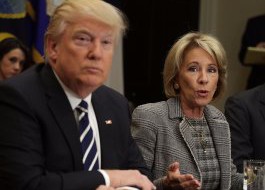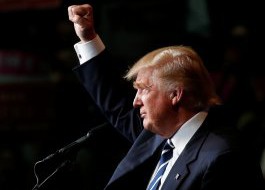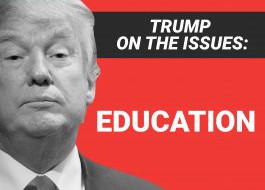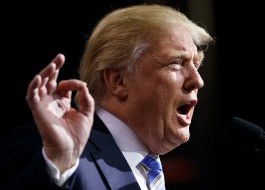
Donald Trump was elected 45th President of the United States of America early Wednesday morning, in what is being called one of the most stunning upsets in political history.
While education policy was largely a second-tier issue during his campaign, he did unveil one detailed proposal for his education agenda in September, pledging to immediately invest $20 billion in school choice.
"There's no failed policy more in need of urgent change than our government run education monopoly," Trump said at a speech in Cleveland, Ohio. “I want every single inner-city child in America who is today trapped in a failing school to have the freedom, the civil right, to attend the school of their choice.”
Trump's plan would reprioritize existing federal dollars to establish a grant to allow children living in poverty to attend whatever school they wanted. Trump argued that the voucher system would not only help impoverished children enroll at quality schools, but a free market would also improve the entire system.
Federal funding would not be enough to sustain the plan and would cost states another $110 billion.
"If the states collectively contribute another $110 billion of their own education budgets toward school choice on top of the 20 billion in federal dollars, that could provide $12,000 in school choice funds to every single K-12 student who today is living in poverty," Trump said at the campaign event.
While eligibility for vouchers varies state-by-state, Trump promised to campaign nationwide and call upon individual states and cities to elect officials in support of school choice.
"Not only would this empower families, but it would create a massive education market that is competitive and produces better outcomes," he said.
Trump also said he will support merit-pay for teachers.
Opponents of voucher programs argue that they siphon essential funding from already meager public-school budgets to other schools and at their worst are unconstitutional, as they can use taxpayer-funded vouchers to benefit religious schools. Supporters argue that vouchers help disadvantaged students.
It's perhaps unsurprising that Trump chose to unveil his education proposal with school choice at the helm. Trump's running mate, Mike Pence, supported many school choice initiatives during his time as Indiana governor.
Pence won big in his push to expand the state's voucher program, successfully lifting the cap, which was previously $4,800, on the amount of money families can receive when sending their children to private schools. In fact, Indiana's voucher program is now one of the largest in the nation, according to the New York Times.




